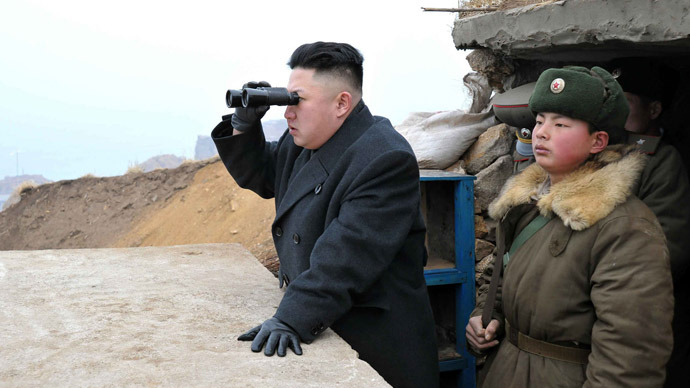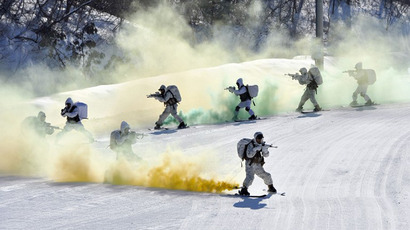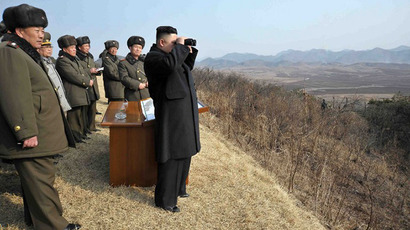North Korea demands apology from South Korea for ‘open declaration of war’

Recent statements by Seoul have angered Pyongyang to the extent that the latter considers them a cry for war. This follows North Korea’s nullifying all non-aggression pacts and cutting the hotline with its southern neighbor.
According to North Korea’s official news agency KCNA,
Pyongyang’s senior official with the Committee for the Peaceful
Reunification of Korea demanded an apology on Saturday, reacting to
the South Korean Defense Ministry’s threat that North Korea
“will vanish from earth”, should it choose to strike first.
Pyongyang has said that it views the statement as "an open
declaration of war."
The most recent tit-for-tat exchange started with Pyongyang’s
displeasure at Seoul’s support for the latest round of sanctions
imposed by the UN Security Council after North Korea went ahead
with its February 12 nuclear test. The country has officially
rejected the sanctions, which were unanimously decided at the UNSC,
and are aimed at freezing accounts, stopping bulk financial
transactions, the transportation of banned cargo and tougher
screenings of the country’s diplomats when travelling. Pyongyang
claims that targeting it with sanctions will have the opposite
effect to curbing its nuclear program, multiplying its strike
capability by “a thousand times.” This will be the fifth
time sanctions are implemented since 2006. The resolution was
adopted on Thursday.
Meanwhile, China continues to stress peaceful dialogue, especially
with cross-cutting interests in the region. On the one hand,
Beijing is Pyongyang’s major ally; on the other, it wishes to keep
diplomatic and business ties with Seoul and Tokyo, while
simultaneously trying to appease the West by playing ball at the
Security Council. The country’s Foreign Minister Yang Jiechi has
said that he does not believe sanctions to be the go-to strategy
for dealing with North Korea. In a statement at a news conference,
the Chinese FM said “We always believe that sanctions are not
the end of Security Council actions, nor are sanctions the
fundamental way to resolve the relevant issues”.
But it is outside interests – not just regional confrontations –
that could impact the situation just as heavily. With the United
States threatening ever more decisive action, Pyongyang could
strike Seoul. It has already promised to forcefully reunify the two
Koreas if the US doesn’t back off, said their Ministry of Foreign
Affairs in February.















